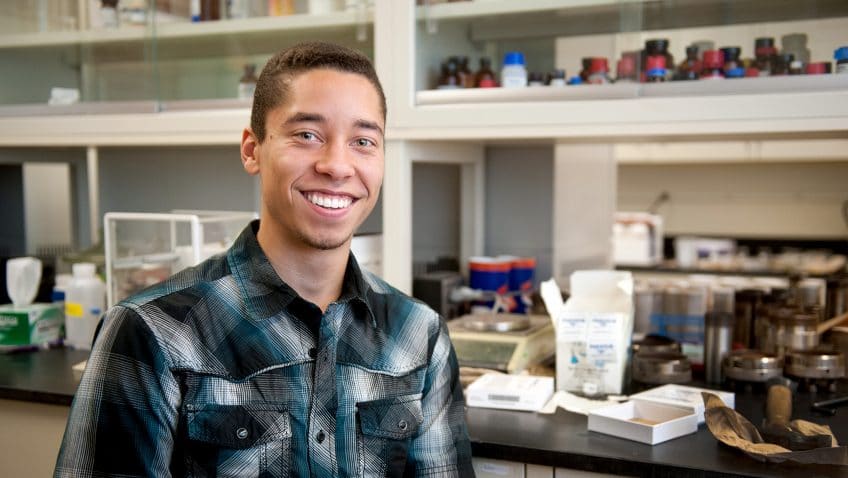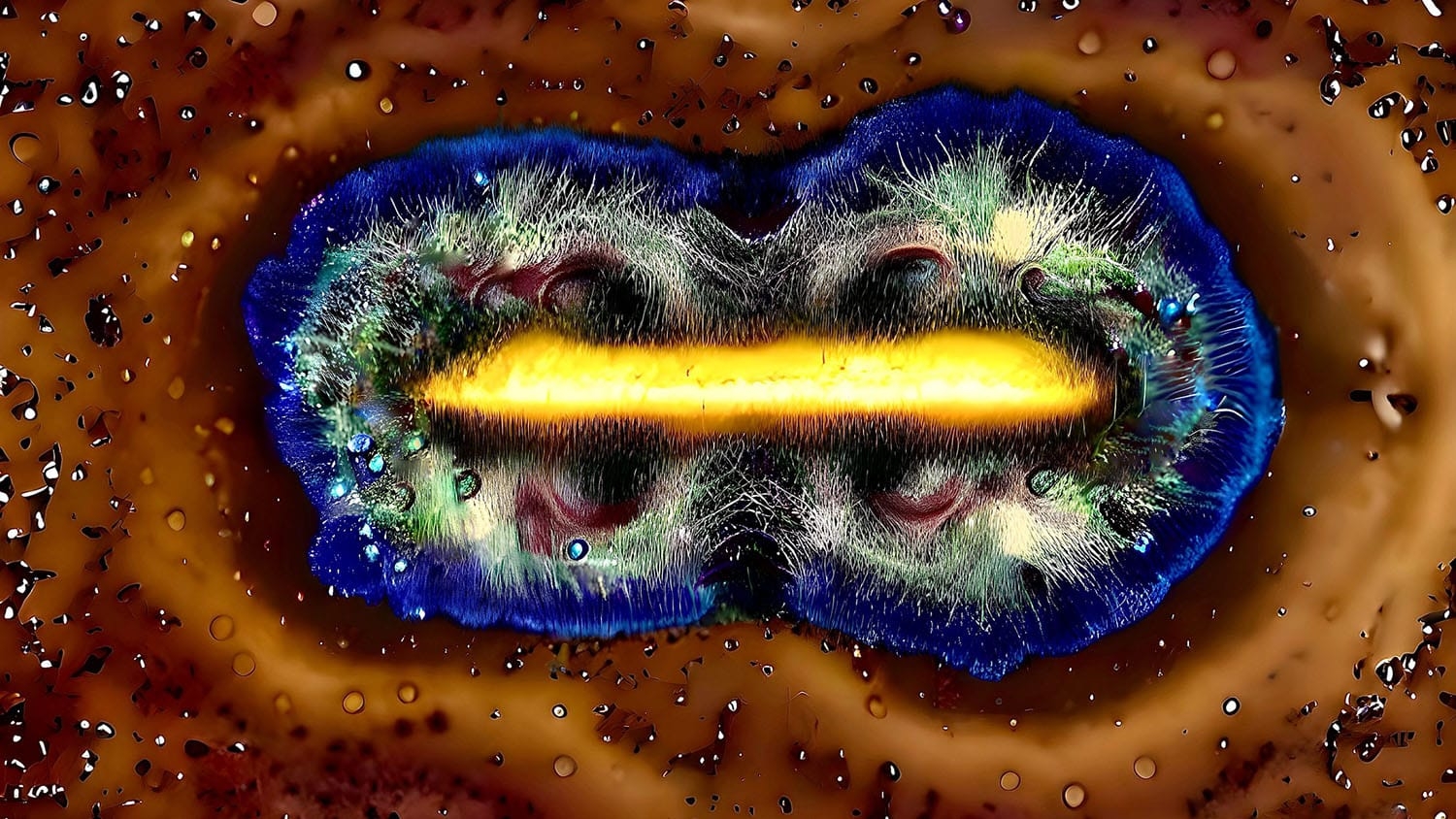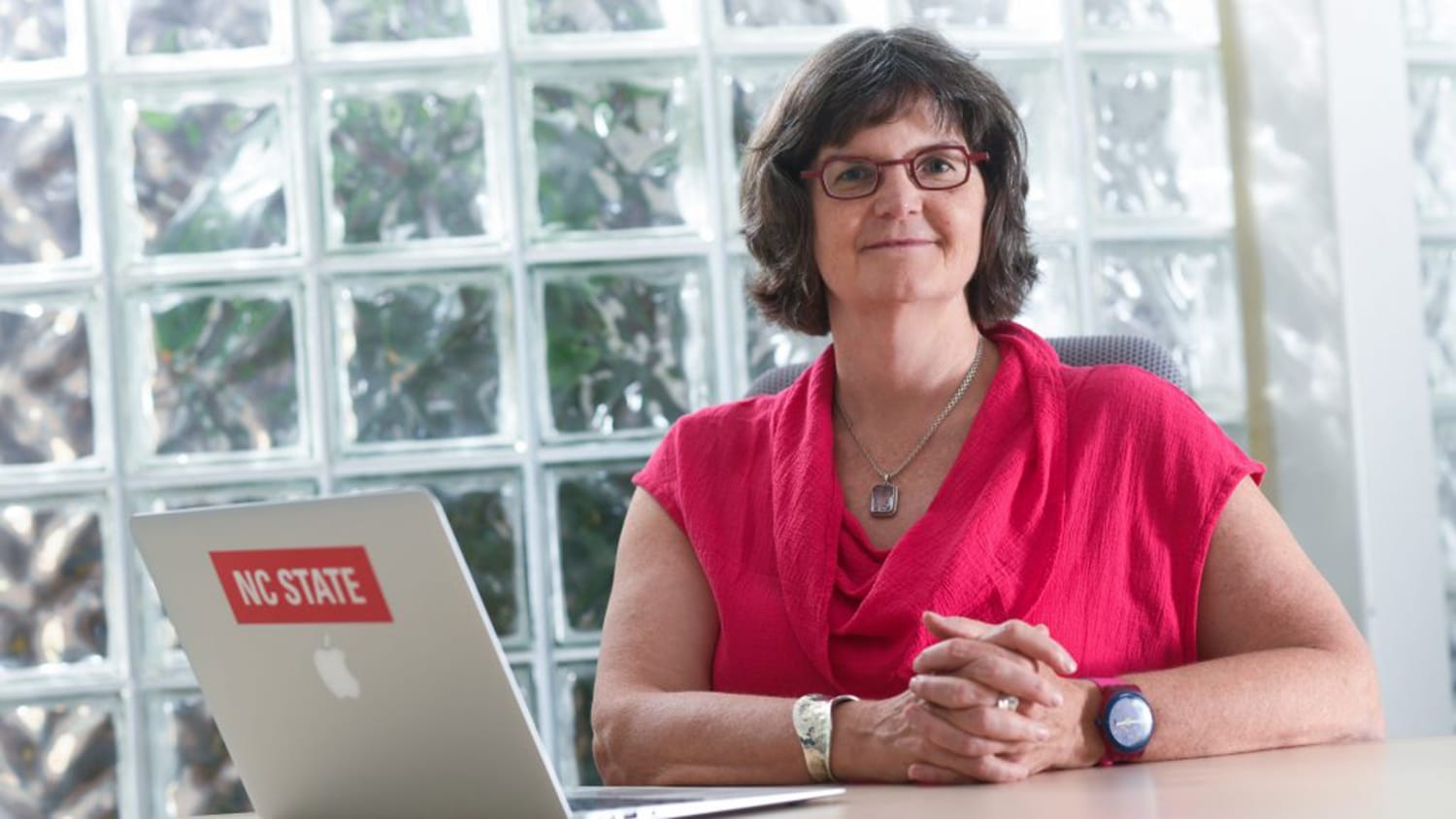New Graduate’s NC State Experiences Power a Bright Future

When Kyle Virgil was applying to college, he knew NC State was the home for him.
“NC State was actually the only school I applied to,” he says. “It seemed to be the only school I saw that placed a real excitement and emphasis on science for its undergraduates. The value of community and diversity that NC State promoted was also a welcoming sign.”
Four years later, Virgil is leaving the NC State community where he has thrived for his next adventure — scientific research in Scandinavia.
The senior chemistry major from Havelock, N.C., was one of five NC State students to win Fulbright Scholarships this year. The prestigious award provides funding for a one-year research project outside the United States.
Virgil will be studying at Uppsala University in Sweden, working with researcher Leif Hammarström to study solar energy conservation. He wants to contribute to the development of photochemical devices that convert carbon dioxide in the atmosphere into liquid hydrocarbon fuel that can power vehicles.
Research has played an important role in Virgil’s NC State experience. He has been an undergraduate research assistant in the computational chemistry lab of Elena Jakubikova. He also completed a summer undergraduate research program at the California Institute of Technology in 2015.
But he hasn’t spent all his time in the lab. The standout student has been a leader in the campus community as a College of Sciences student ambassador, president of the Society for Multicultural Scientists and a scholar in the Initiative for Maximizing Student Diversity program. He is also a College of Sciences Dean’s Circle Scholarship recipient.
“I am fortunate to have had so many amazing experiences at NC State,” Virgil says. He cited an Alternative Service Break trip to the mountains of West Virginia, on which he lead a team repairing rural homes, as a particular highlight.
Although Virgil has not yet settled on a specific career, he hopes to continue conducting research at a university or laboratory after he completes graduate school. “I’m also open to science-adjacent paths where I can influence the direction and diversity of scientific research, and education, on a national or international level,” he says.
Virgil credits his fellow students and the faculty and staff in the College with supporting him throughout his academic career.
“The College of Sciences has done so much for me,” Virgil says. “I’m ready for my next challenge.”
- Categories:


